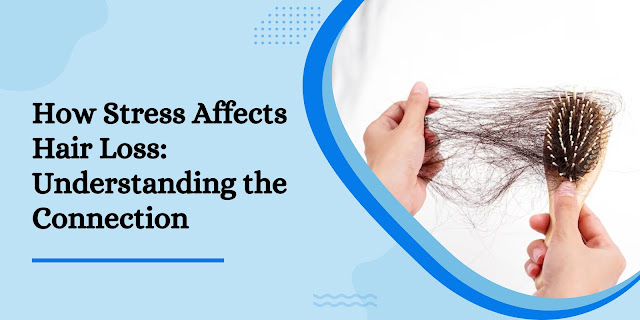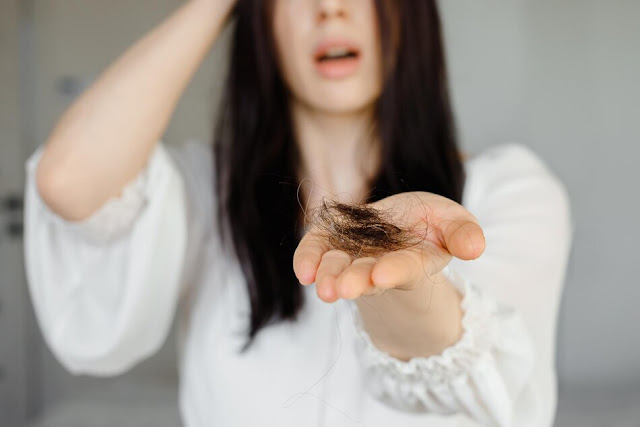How Stress Affects Hair Loss: Understanding the Connection
Stress has become an unavoidable companion in the commotion of our contemporary lives. Stress has a direct impact on our physical health, including the health of our hair, even though we typically link it with its impacts on mental health. In addition, finding an effective hair loss treatment requires controlling expectations and realizing that results might not show up right away. We can learn more about the mechanisms via which stress can lead to hair thinning and loss by examining the complex link between stress and hair loss.
1.The Link Between Stress and Hair Loss:
It is a known fact that stress can cause hair loss. In response to stress, the human body releases chemicals such as cortisol, which is also referred to as the "stress hormone." When prolonged, high cortisol levels might throw off the regular cycle of hair growth. A disorder called telogen effluvium, in which a sizable portion of hair follicles prematurely enter the resting phase and increase in shedding, is frequently brought on by this disruption.
2.Telogen Fluvium Described:
Excessive hair loss during the telogen (resting) phase of the hair development cycle is the hallmark of telogen effluvium. This disorder is brought on by stress, which causes a large number of hair follicles to enter the telogen phase at once. Even though hair loss is typically transient, those who experience it may find it upsetting. It can be difficult to link stress to hair loss because the shedding usually happens three to six months after a stressful incident.
3.Hormonal Imbalances:
Prolonged stress can throw off the body's delicate hormonal equilibrium. High cortisol levels have the potential to impact other hormones, including those that control sex hormones and thyroid function. Hair loss may be exacerbated by hormonal imbalances in certain areas. For instance, hypothyroidism, or underactive thyroid, is linked to hair loss and thinning hair.
4. Effect on Hair Follicles:
Stress can have an effect on the health of hair follicles in addition to hair losing. Inflammation brought on by stress can interfere with hair follicles' regular activity, weakening hair strands and impairing hair growth. This may lead to less resilient and more prone to breaking hair.
5.Coping Mechanisms and Hair Health:
Using stress-reduction strategies that work can have a good influence on one's mental and physical health. Deep breathing techniques, yoga, meditation, and regular physical activity are a few practices that can help reduce cortisol levels and lessen the negative consequences of long-term stress. Preventing stress-related hair loss requires putting self-care first and striking a good work-life balance.
6.Nutrition matters
A diet rich in nutrients and well-balanced is essential for preserving general health, which includes healthy hair. Giving your body the nourishment it requires to sustain healthy hair development is crucial during stressful times. Incorporate dietary items high in proteins, vitamins, and minerals to nourish your hair from the inside out.
Conclusion
The first step in resolving this widespread issue is realizing the link between stress and hair loss. A healthy head of hair can be greatly enhanced by taking proactive steps to minimize stress levels, even though some stress cannot be completely avoided. You can support mental health and healthy, resilient hair by adding stress-reduction techniques into your daily routine and making sure your body gets the nutrition it needs. To achieve long-lasting changes in hair health, consult with the best dermatologist for hair loss in Coimbatore.


Comments
Post a Comment